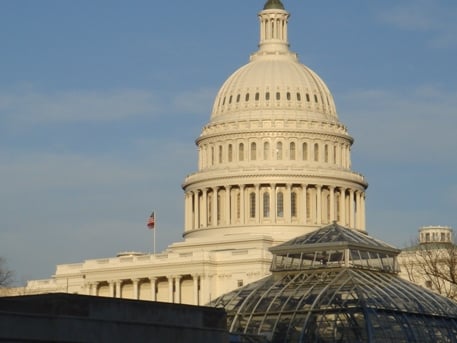B-D and advisory groups look to a) speed up, or b) slow down adoption of single standard of care
In their efforts to sway the new Congress' policy views on investment advice issues, advocacy organizations have launched campaigns to convince lawmakers to either slow down or speed up rulemaking to impose the universal fiduciary duty that was recommended in a recent Securities and Exchange Commission report.
The study, which was sent to Congress on Jan. 21, calls for the SEC to write rules that would require broker-dealers to adhere to the same standard of care acting in the best interests of their clients – as investment advisers. It leaves the details of how the rules should be written to SEC commissioners to hash out.
The two Republicans on the five-member commission, Kathleen Casey and Troy Paredes, issued a dissent to the SEC staff report, arguing that the study's conclusion — that a fiduciary duty would enhance investor protection — was not sufficiently supported.
It's unclear whether their views will be reflected by Capitol Hill Republicans, who now control the House and have substantially expanded their Senate minority. The Dodd-Frank financial reform law mandated the fiduciary study and gives the SEC the option of writing a regulation to implement a universal standard of care.
As Congress mulls over the report, groups on both sides of the issue are mobilizing.
Yesterday, more than 200 members of the National Association of Insurance and Financial Advisors descended on Capitol Hill to deliver the message that a universal standard would jack up their cost of doing business and raise their legal liability.
Currently, broker-dealers operate under the less stringent suitability standard that requires only that the investment products they pitch fit an investor's financial needs and risk appetite. They contend that they could be forced to move to a fee-based business that would be more expensive for clients than their current commission model.
“The risk is displacement,” said Terry Headley, NAIFA president and president of Headley Financial Group in Omaha, Neb. “Perhaps that middle-income market will be disenfranchised and underserved. That's one of the unintended consequences that is not being addressed. What we want to make sure is that middle-income Americans have access to qualified financial advice.”
The other side of the argument is being voiced on Capitol Hill by the North American Securities Administrators Association. Promoting a universal fiduciary duty is among the priorities on the legislative agenda it released today in Washington.
“We're going to push to get these hearings done as fast as we possibly can and get it back to the SEC to have a fiduciary duty in place,” said Steven Irwin, Pennsylvania's securities commissioner and chairman of the NASAA federal legislation committee.
The group will try to convince the newly realigned Congress not to undo Dodd-Frank, which was approved on nearly party-line votes under Democratic control of both the House and Senate.
“We want to fend off any attempts to weaken Dodd-Frank legislation,” said David Massey, NASAA president and North Carolina's deputy securities administrator.
The fiduciary duty dissent by Ms. Casey and Mr. Paredes, however, provides lobbying ammunition for NAIFA.
“I don't think the study revealed anything of significance – that one standard is better at protecting consumers than the other,” Mr. Headley said.
Members of Congress will hear just the opposite pitch from the Financial Planning Coalition.
“We think the baseline case has been made for putting brokers and advisers on the same plane,” said Dan Barry, managing director of public policy and government relations at the Financial Planning Association. “They're providing the same services to customers, so investors deserve the same level of protection.”
Each group is trying to educate 96 new House members and 16 new senators on the issue.
“The relationship building is extremely important at this stage, with the turnover of more than 100 members of Congress,” Mr. Headley said.
Raising congressional awareness is paramount for NASAA, too.
“That's a big job, and we're beginning the assault today,” Mr. Irwin said.







